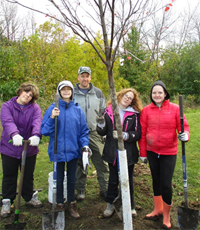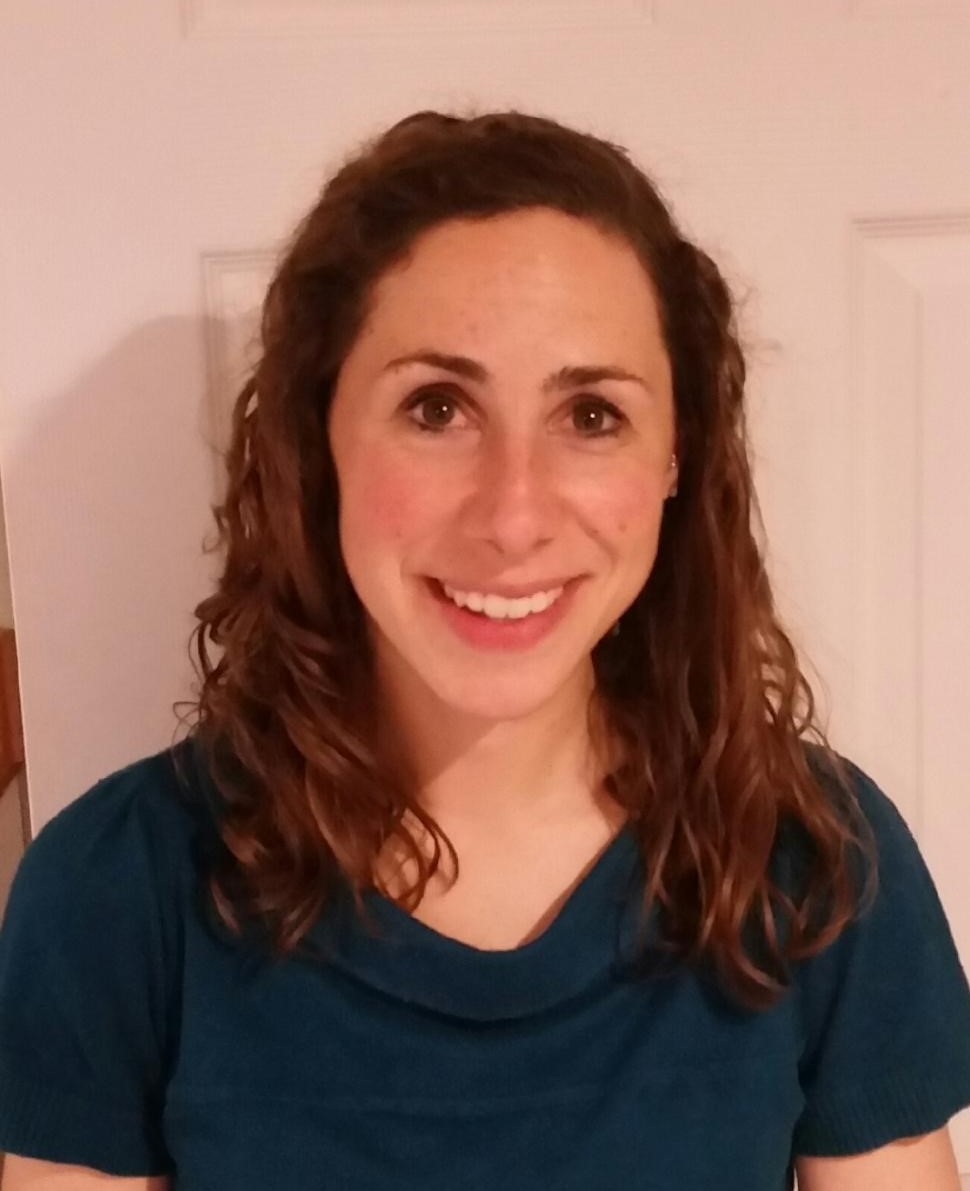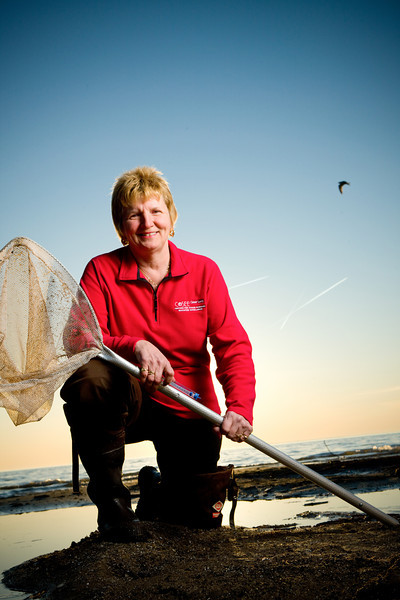Great Lakes Model Educator's Network
The Great Lakes Model Educators Network is a community of educators with the common goal of promoting Great Lakes literacy and stewardship in K-12 classrooms and environmental programs throughout NY’s Great Lakes Basin. Be part of a network of peers promoting Great Lakes environmental stewardship and providing each other with shared professional development and educational experiences.
Great Lakes Model Educator's Network Goals:
- Host Great Lakes-focused workshops in coastal sub-basins throughout New York State
- Opportunities to help educators become GLME
- Create and utilize NYGLEEE Basin Bins with information, materials, and resources for teachers and educators to integrate Great Lakes Literacy Principles and related curricula into their classrooms. Bins will be available throughout NYS. Please visit the NYGLEEE website below to view those locations.
What is a Great Lakes Model Educator?
Great Lakes Model Educators (GLME) are environmental educators who have participated in Great Lakes workshops or trainings and have demonstrated successful integration of Great Lakes Literacy Principles and related curricula into their K-12 classroom or program.
What is the responsibility of being a Great Lakes Model Educator?
Integrate Great Lakes Literacy principles and corresponding experiential education activities into their curriculum to promote environmental literacy and stewardship, and do not advocate for desired outcomes on political issues in their programs or classrooms. GLME support other educators’ integration of Great Lakes Literacy principles into classrooms and programs.
What is the significance of being a Great Lakes Model Educator?
Great Lakes Model Educator receive an official certificate and become part of the GLME Network of educators in the Great Lakes Basin. This network enables educators to connect with others also interested in integrating New York’s Great Lakes into their classrooms and programs to promote environmental stewardship, and provide each other with professional development and share experiences. This will provide a connection for educators to stay up to date with NY’s Great Lakes educational materials and events.
Here’s how you or a deserving educator could become a Featured Great Lakes Model Educator:
Individuals may apply or recommendations for a deserving educator will also be accepted. Download the Great Lakes Model Educator Application (pdf). The full application must be completed and submitted to New York Sea Grant for Review. SGBuffal@cornell.edu.
Featured Teacher! back to top
2020

Name: Patrick Creamer
Job/Profession: Intermediate Science Teacher
Contact Information: Click here to email Patrick
Patrick’s Great Lakes Connection:
Patrick has been involved in numerous Great Lakes place based professional development workshops, research projects, and education initiatives since 1997, including attending a week long Great Lakes Academy, researching environmental changes in the Buffalo River, and engaging students in hands on water quality monitoring, watershed discovery, and tree planting activities.
Growing up near the shores of Lake Ontario near Watertown, NY and later as a college student, resident and teacher in Western New York, Patrick has a strong, lifelong connection to the Great Lakes and has continuously sought to spend as much time as possible either on or near the lakes, or learning about the lakes either formally or informally.
As a Great Lakes Model Educator, Patrick would like to help further develop Great Lakes environmental science curriculum and training/assistance to teachers in Western New York and other regions within the Great Lakes Basin.
A Teacher’s Meaningful Discovery:
“I have been taking my intermediate level science students out to do macroinvertebrate surveys and qualitative water analysis in Cayuga Creek (Niagara County) which adjoins our MS/HS campus, for most of the past 13 years. This hands-on, place-based research experience, coupled with a thorough lead in and follow up in the classroom, has helped my students connect human impacts to the health of the Great Lakes and its ecosystems.
More recently, I have done a lot of work with the Buffalo Niagara Waterkeeper. In the past few years, I have taken the MS Outdoor Adventure Club to several tree plantings along Gill Creek in Niagara Falls. Students participated in planting native tree and shrub species and a riparian zone cleanup. Several of these students remarked that they felt good about making the local environment a little cleaner and a little healthier.
I had taught an extended Great Lakes unit to a small special education class, and I’ll never forget the conversation I had with one of these students. Long after we had learned about pollution found in Great Lakes game fish and the NYSDOH recommendations on fish consumption. He was showing me pictures of these big, beautiful Lake Trout that he, his father and his father’s friends had caught from a boat in the Lower Niagara River. I asked him if they had eaten any of fish yet and he responded by saying, “No, we stopped eating the fish we catch ever since I told my dad about all of the pollution in them.” This was very gratifying to hear, and it helped me to realize that improved Great Lakes environmental literacy in young people can make a tangible impact on their lives and on the health of the Great Lakes.”
2017

Name: Alison Zybczynski
Job/Profession: 8th – 9th grade science teacher in Attica, NY
Contact Information: Click here to email Alison
Alison's Great Lakes connection:
Alison has attended several Great Lakes focused workshops, including the week-long Great Lakes Academy to study the Buffalo River and the Lake Erie/Niagara River watershed, a Sea Perch workshop where attendees learned how to make an underwater robot and ways the robots could be used educate students, and a NYGLEEE Model Educators Networking workshop in where attendees learned ways to incorporate Great Lakes information into curricula. Alison uses several different methods to make students aware of the importance of the Great Lakes and their resources while trying to instill in them the desire to protect the delicate ecosystem.
“When teaching about watersheds, we discuss the whole Great Lakes Basin, and complete several activities about the Great Lakes. Throughout these activities, I encourage students to discuss why this resource is so important, the laws that protect the Great Lakes, how the pharmaceutical drugs we take affect the water quality and life in the water, and show pictures of both native and invasive species. Some of the best conversations between my students involve the health of the Great Lakes ecosystem. It surprises me how many of them are passionate about the health of their water… As a Great Lakes Model Educator, I will continue to share resources that I have acquired with other teachers.”
A Teacher’s Meaningful Discovery:
"The best experience that I have had with bringing students into the field was in October of 2013, 25 students were brought to the Erie-Basin Marina to participate in a Buffalo Urban Outdoor Education field trip. Students took part in dredging the bottom of Lake Erie, studied plankton under a microscope, learned how to navigate in the open water, and studied various invasive species on Miss Buffalo (a passenger boat serving the Buffalo Niagara region).
Students also got a historic tour of the Buffalo River, learning about the grain silos, shape of the Buffalo River, and the rise and fall of the city of Buffalo. The students remarked on how they had really never learned the history of the area, and were very surprised at how important the City of Buffalo was to development of the mid-west and that it was a cultural center, similar to how New York City is viewed today. Many of the students had no idea that the water where they lived nearly 30 miles away ended up in Lake Erie too. An eye-opening experience for many of them.
About two years later, during National Honor Society interview, a student interviewee commented on how the trip to Lake Erie and up the Buffalo River had changed his views about water and how we use it, and stated that the field trip he had taken was one of his favorite lessons in high school.
I truly feel that getting students out into the field makes them think more about the Great Lakes and the health of the ecosystem, and makes them want to protect our freshwater resources into the future."
2016

Name: Helen Domske
Job/Profession:
New York Sea Grant's Coastal Education Specialist; Associate Director, Great Lakes Program
Contact Information: Click here to email Helen
Helen's Great Lakes connection:
Helen regularly conducts teacher trainings for educators on Great Lakes issues such as food webs, microplastics, pharmaceuticals and personal care products, aquatic invasive species and others.She regularly interacts with students in grades 4-12 to encourage them to become Great Lakes stewards through beach clean-ups, community displays and programs and other environmentally-friendly actions. Helen also teaches an undergraduate course at the University of Buffalo on Great Lakes Ecology, where her students complete 10 hours of volunteer work for a Great Lakes environmental organization and take on a project that helps inform the public about Great Lakes issues. Students have set up displays in the student union or at area shopping centers to share the message of proper disposal of pharmaceuticals or reducing the spread of aquatic invasive species. One group put up stickers on dorm bathroom mirrors to help educate other students about dumping pharmaceuticals down the drain. Helen also helps coordinate the Great Lakes Student Summit in Buffalo that brings 250 students and teachers together to learn about the Great Lakes and commit to becoming environmental stewards.